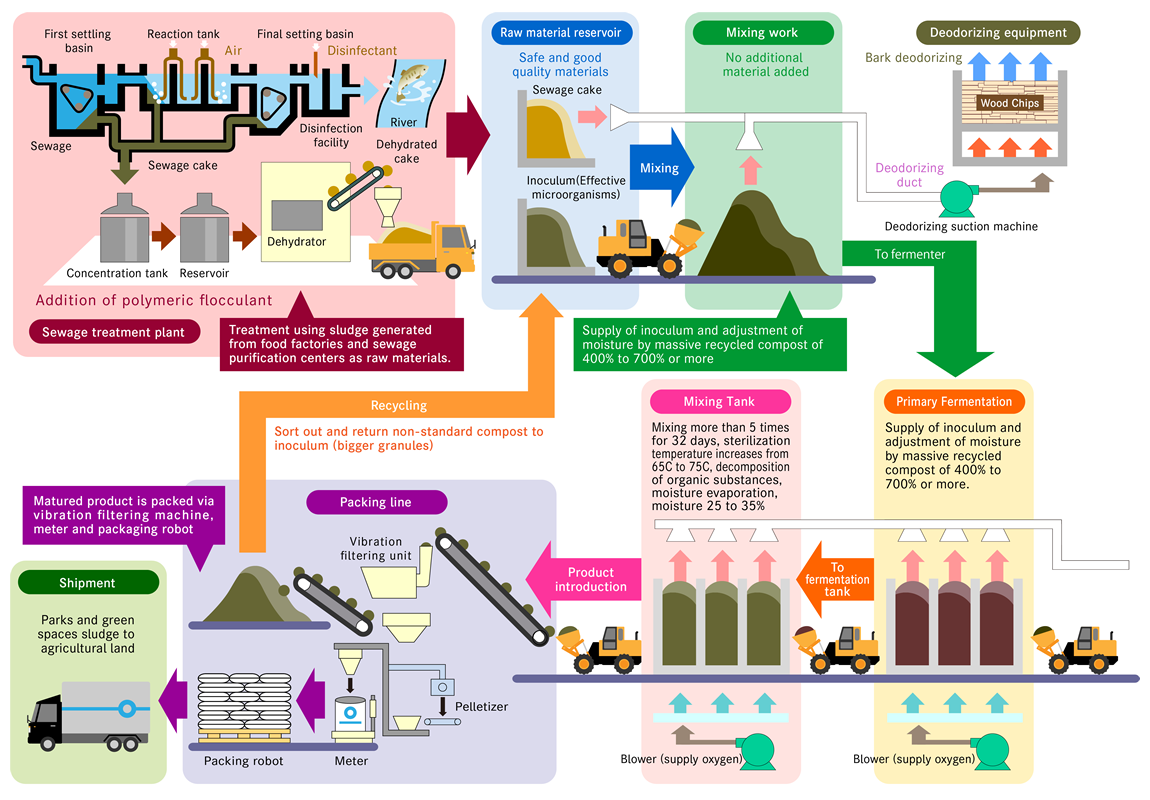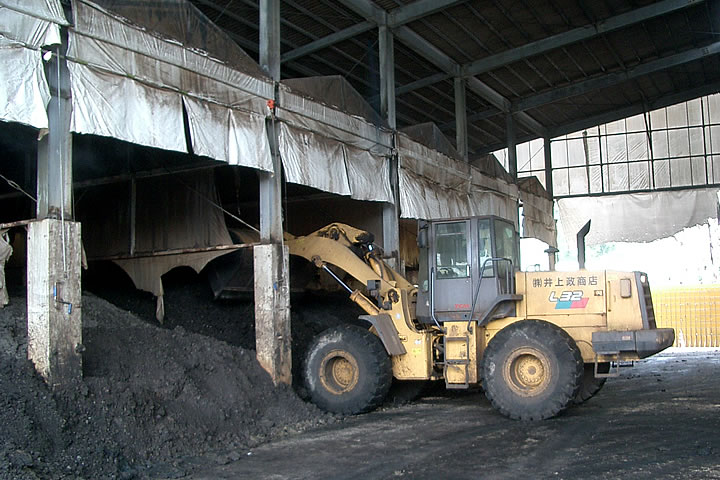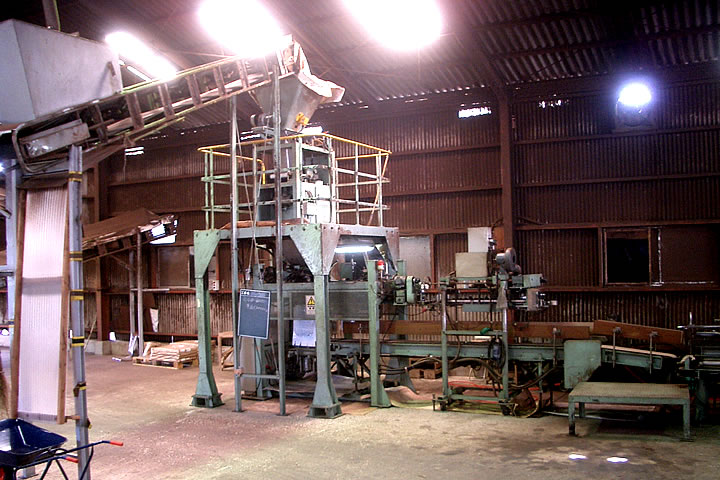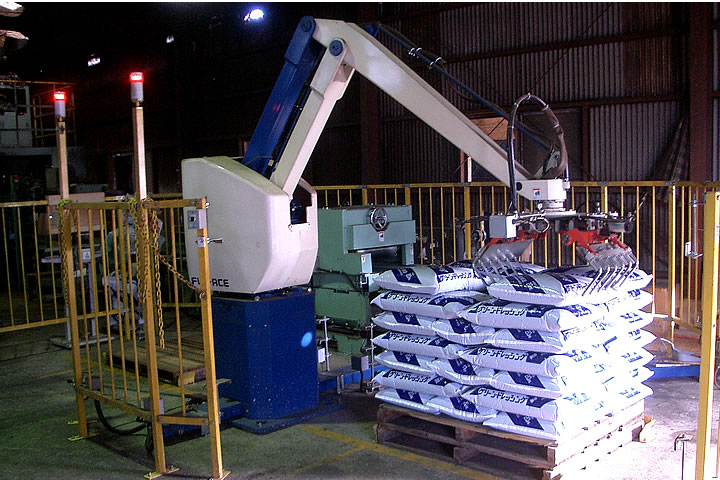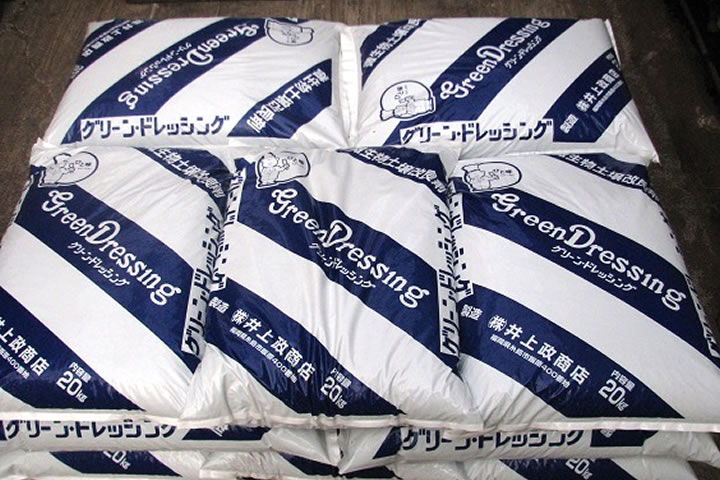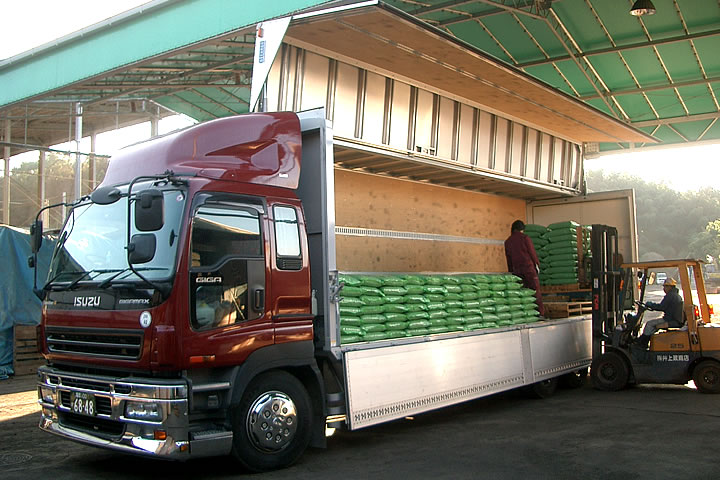Main business
We mainly ferment sludge byproducts generated from food factories and sewage purification centers by aerated compost utilizing naturally existing microorganisms and produce an organic soil conditioner (organic fertilizer).
- Sludge is fermented in multiple, aerated static piles leading to active aerobic fermentation by microorganisms. As a result, the temperature rises up to 60 C within the sludge which neutralizes harmful pathogenic microorganisms (e.g. bacteria, fungi, and parasite eggs) making the end product fertilizer safe and stable.
- The fertilizer acquired by the end of our fermentation process is free of strong, unpleasant odors. In addition, the density of the fertilizer is 0.8/ ton allows for easy use of the product.
- Water content is adjusted without additional additives.
Features of Bio solid compost
“Bio solid compost” is a high molecular weight sewage sludge (sewage cake) which has been dehydrated by a macromolecular flocculant. The sludge is turned over at least five times by static forced aeration, subjected to high temperature fermentation by microorganisms such as actinomycetes. It is a rich polymer type of fermented sewage sludge compost. As a soil conditioner with fertilizer properties, it has a positive effect on improving the biological and physicochemical properties of soil.
Features of Bio solid compost
- In order to improve maturity, the product is fermented by Bio solid compost through static type forced aeration without externally supplied heat, allowing for mass return and mass recycling. There are no additional organic additives in the compost such as sawdust, which is added by other companies as a water conditioning material.
- Improvement of physicochemical properties of soil
- Improved effect on soil chemistry
As a fertilizer, we can expect a delayed effect of the supply of nitrogen and phosphoric acid. - Improved effect on soil physical properties
The activity of soil microorganisms can be expected to promote soil agglomeration.
- Improved effect on soil chemistry
- Improved effect on soil biology
By applying organic matter as a substrate, bioactivity is enhanced and a healthy subterranean environment can be expected. Granulated products are made at 60 ° C or below using molding adhesives to promote beneficial microorganisms, and natural drying is carried out while avoiding external hot air drying. - Product form · Handling
By raising maturity, there is no odor and viscosity. Low moisture content, easy to preserve. It is in powder / granular form and is easy to use. - Safety
For high-temperature fermentation, we consider safety against environmental pollution such as heavy metals, pathogenic bacteria / parasites.
When chemical fertilizers were first used, they were effective because the soil condition for microorganisms to survive was optimal, and diseases were also less.However, in the current agricultural landscape, which has been altered by continued use of chemical fertilizers and agricultural chemicals, the earth’s soil condition has declined and various diseases are on the rise.By using organic compost, microorganisms actively moisten the soil, supply nutrients to crops, and have a remarkable effect on growth. Creating healthy soil is an important agricultural theme going forward in the future.
- “Organic compost” that is fermented and aged with high-quality organic raw materials in an old-fashioned way.
- High fermentation maturity and quality control is perfect, so you can apply it with confidence.
- It contains a large amount of useful microorganisms in fertilizer.
- By the action of useful microorganisms, older crops decompose easily into organic components that can be reused to improve the growth future crops.
- The function of microorganisms is to improve the rhizosphere soil environment by promoting aggregate structures to improve rooting so that crops become healthy, thereby helping to alleviate soil diseases.
- Ideal for supplementing microorganisms after eliminating harmful microbes/parasites.
Compost plant factory system flow
